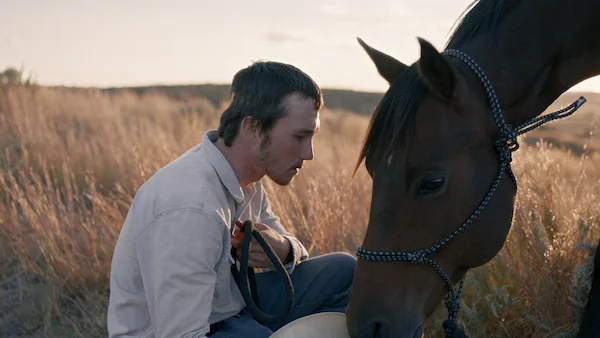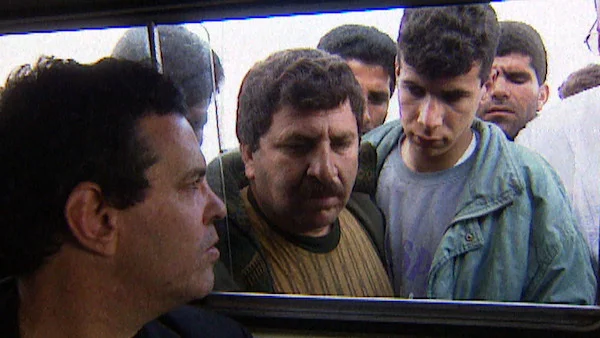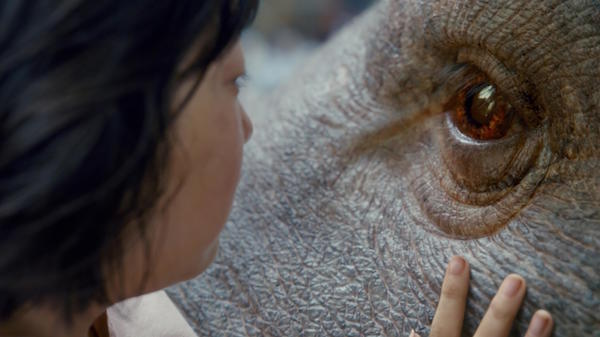Thierry Frémaux is a cinema potentate. And that’s a great thing!
While most people at the top usually usurp their power for personal gain, the director of the Festival de Cannes uses his inimitable influence for the good of cinema. It’s a vision which may eventually — if filmmakers have their way — change the world. Thanks to ones like Amos Gitai, Chloé Zhao and Bong Joon-ho to cite a few whose latest oeuvres I’ve watched these past 24 hours — change the world for the better.
On a personal note, watching Frémaux’s elegant and welcoming presence at the top of the red carpet staircase before each of the official screenings has been a breath of style air, in a world that’s increasingly forgetting the power of modesty and class.
Chloé Zhao’s ‘The Rider’
Brady Jandreau in ‘The Rider’
So one of the points that Frémaux is most passionate about with cinema is the need to watch films in theaters, on the big screen. It’s a leitmotif I’ve heard from him, in press releases, when I interviewed him in Dubai and in the run up to this festival with the whole Netflix titles in competition controversy.
Most of the films that are premiering in Cannes this year, including one of the Netflix ones but more on that later, prove his point. They prove beautifully that films belong on that spread out, tensed sheet which not only enlarges the scene but also transports us to a magical world where communication is performed face to face and people dare to fall in love. Chloé Zhao’s ‘The Rider’ is the perfect example. It is grand, suggestive and shot stunningly by cinematographer Joshua James Richards, who shot Zhao’s previous masterpiece ‘Songs My Brothers Taught Me’ as well, which also screened in the Director’s Fortnight two years ago.
Zhao has this wonderful way of immersing herself wholeheartedly in her story and, most importantly, her characters, non-professional actors who play themselves in her films. ‘The Rider’ is no different and her care in getting to the bottom of what makes Indian cowboys connect with their inner identity is both deeply moving and a key to understanding who and why this part of America may have found someone like Trump so groundbreaking.
Amos Gitai’s ‘West of the Jordan River’
True courage in today’s world lies not only in performing heroic acts or taking the politically correct side of the argument. True courage, I believe, is represented by those who dare to take the most peaceful road and can envision both side of the conflict. Israeli filmmaker Amos Gitai is one of those figures to me, a modern, cool, finger-on-the-pulse-yet-looking-to-the-past-for-answers man who dares to challenge both sides of the Israeli-Palestinian conflict to find a solution.
Premiering in the Directors’ Fortnight, ‘West of the Jordan River’ is a documentary that continues a political vein Gitai rediscovered in the last few years. The epitome of this “genre”, lets call it that for lack of a better word, was his 2015 film ‘Rabin, the Last Day’, an ode to a man who probably represented, with all his perhaps imperfect background, the last chance for peace in the Middle East.
In this film, we watch Gitai grow up as a man, but also go after them all as a filmmaker. I wonder if he ever fears for his life, this no-holds-barred super genius whose greatest fault is that he dares to wish for peace... If history has taught us anything it is that those who stand on the side of justice and believe in coexistence, those are the men and women with the most enemies. Strife, struggle and hatred is what we seem to thrive on these days. And Israel is just a hyper, neon sign example of that. The day we’ll be able to resolve that conflict, may be the day humanity will cease to get lost in the banality of differences and accept the core similarities that make all of us the same. Or all of us “the Other”.
Bong Joon-ho’s ‘Okja’
You may have heard about the projection snafu at the film’s press screening, or followed the hoopla in the media about Netflix titles in competition, but the reality of the story here is that ‘Okja’ is a lovely fairy tale about the courage to love and the passion to follow through on that love to the ends of the earth. The sad reality is that many who come to the Festival de Cannes to cover it in the media are jaded, tired, and overworked and the preciousness of this story may simply have been wasted on them.
Thankfully, I went to watch the film the day after it premiered and I got to sit among film lovers who gave the magical, fantastical aspect of the film a chance. And with its bigger than life characters — played by extraordinary actors such as Jake Gyllenhaal, Tilda Swinton and Giancarlo Esposito — that fantasy pig who appears one third hippo, one third piglet, one third puppy and a whole lot of fun plus the courageous girl Mija played by An Seo-hyun, I laughed and felt along with the story.
I leave you with a charming article from the festival’s website about how the black tie dress code came to be adopted for most Cannes events.



